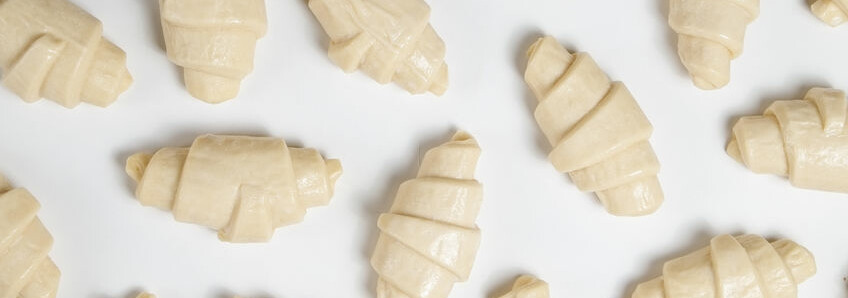
With a new month come new baking questions from our commercial baking community, Baking Industry Professionals. This month, one of our noteworthy topics was how to choose the best yeast for frozen dough and frozen croissant production. For those who aren’t familiar with the process, frozen dough refers to dough pieces that have been frozen prior to proofing and baking steps. The frozen dough trend is on the rise and is being driven by consumers’ appetites for convenience. While this process is popular with short dough processing systems like straight dough and no-time dough, laminated products and small-sized hearth breads are also commonly frozen.
Why Yeast Matters
On the surface level, it may seem simple to select the ideal yeast for your dough before freezing. Nonetheless, things tend to get more complicated as we delve into the freezing process. A few key factors to consider during frozen dough production are:
- Adding the right kind of yeast to your formulation
- Using the correct amount of yeast
- Protecting the yeast
- Optimizing the freezing process
Remember that you can do everything perfectly, but if you freeze the dough too slowly, the yeast won’t survive. Freezing the dough slowly causes large ice crystals to form. These large ice crystals will pierce the yeast cells, thereby damaging and killing them.
If you are using a standard freezing method, i.e. a regular freezer, a common approach to avoid these issues would be to put 25-50% more yeast in the formulation. For those using faster freezing methods, such as a blast freezer or liquid nitrogen, it is not necessary to increase the yeast as much, although you should opt for a type that has more freeze tolerance. Additionally, dough conditioners can be a great tool for maximizing freeze tolerance and protecting the gluten in the dough, as well.
Do you want to join in on the conversation? Become part of the Baking Industry Professionals page on LinkedIn or Facebook today!

